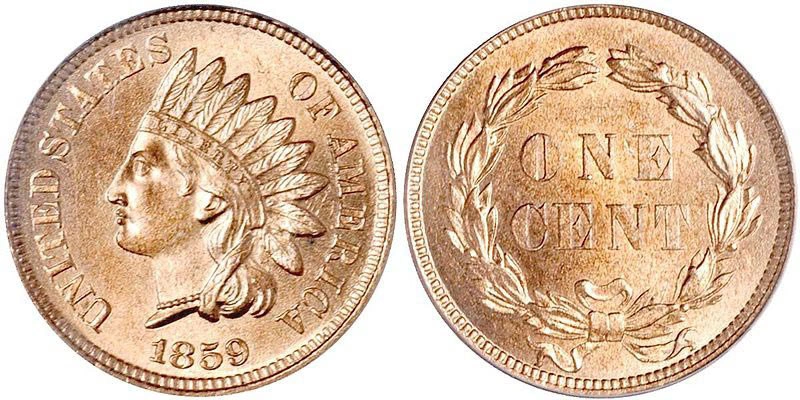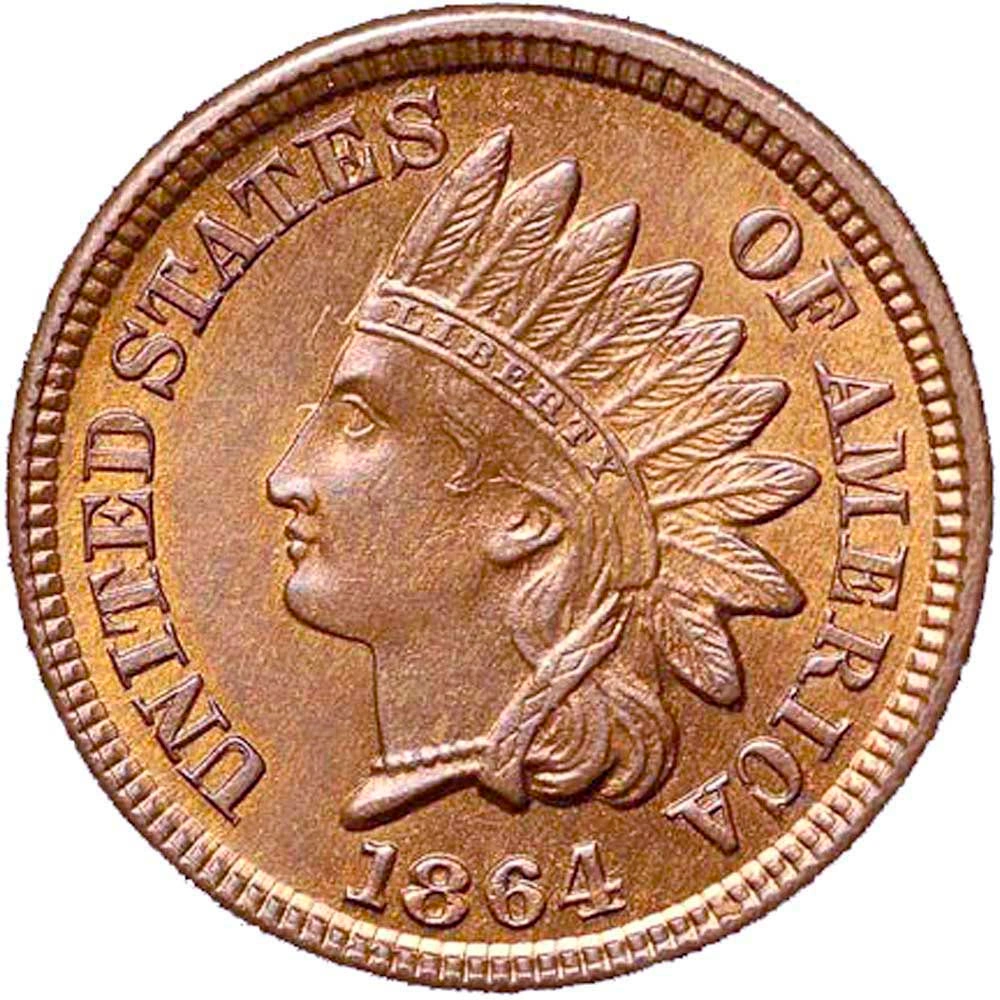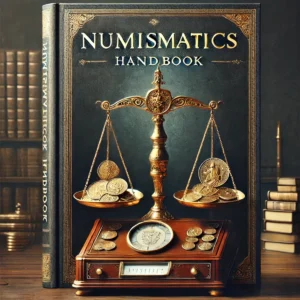Indian Head Cents: Key Dates, Errors & Value (1859–1909)
Discover the hidden value, design history, and collector demand behind Indian Head pennies — a timeless U.S. treasure.

📘 Download the full guide: Numismatist’s Handbook — A +135-page expert resource on U.S. coin collecting.
Why Indian Head Cents Matter
Indian Head cents were minted from 1859 to 1909 and remain one of the most beloved coins among collectors due to their unique design and strong historical ties. These coins feature Lady Liberty wearing a Native American headdress on the obverse and a laurel or oak wreath on the reverse, depending on the year.
Collectors love Indian Head pennies for:
- Key date rarities
- Civil War and Reconstruction era history
- Iconic design evolution
- Early U.S. minting craftsmanship
Whether passed down from family or found in old collections, Indian Head cents often hold surprising value — even in circulated condition. Many collectors begin their journey with these coins because they represent a tangible piece of 19th-century American life. With no mintmarks for the vast majority of the series and a clear year-by-year design and weight evolution, this series is not only collectible, but educational.

The copper-nickel composition of the earliest years (1859–1864) was later replaced by a bronze alloy from 1864 onward. The detail and durability of these coins have helped many survive in good condition. Coins from the Civil War period, the rare “L” varieties, and low-mintage final issues from San Francisco are among the most sought-after today.
In short, Indian Head cents offer the perfect combination of affordability, historical depth, and upside potential — making them a cornerstone for every serious U.S. coin collector.
Indian Head Penny Values & Key Dates by Year
Understanding year, mint mark, and condition is crucial to evaluating an Indian Head cent. Here are key years that fetch premiums in collector markets:
| Year | Mint Mark | Est. Value (Avg) | Rare Variant? |
|---|---|---|---|
| 1877 | — | $900–$1,500 | Yes |
| 1864 | L on Ribbon | $200–$500 | Yes |
| 1908 | S | $100–$300 | Yes |
| 1909 | S | $350–$600 | Yes |
| 1869 | — | $150–$300 | Semi-Key |
| 1872 | — | $250–$500 | Yes |
| 1888 | 8 Over 7 | $500–$1,000 | Rare Error |
Note: “L” on ribbon refers to designer James B. Longacre’s initial. 1908-S and 1909-S were the only Indian Head cents minted in San Francisco.

Most Valuable Indian Head Pennies (Detailed Breakdown)
1. 1877 Indian Head Penny ($900–$1,500+)
The king of Indian Head cents due to low mintage (only 852,500 struck). Highly sought-after and extremely valuable even in lower grades.
2. 1909-S Indian Head Penny ($350–$600)
Final year of production and only the second coin in the series to feature the “S” mintmark. A favorite among series completists.
3. 1864-L Penny ($200–$500)
Includes a small “L” on Liberty’s ribbon — marking Longacre’s signature. Rarer than the standard 1864 bronze cent.
4. 1888/7 Overdate Penny ($500–$1,000)
A dramatic error where the “7” is visible beneath the “8.” A rare and valuable variant.
5. 1872 Indian Head Penny ($250–$500)
Low mintage year with high collector demand.
Other valuable dates include:
- 1869 – $150–$300
- 1873 Doubled Liberty – $250–$600
- 1908-S – $100–$300
Comparison: Indian Head vs Wheat Pennies
| Feature | Indian Head Cents (1859–1909) | Wheat Pennies (1909–1958) |
|---|---|---|
| Obverse Design | Liberty with Native headdress | Abraham Lincoln |
| Reverse Design | Laurel/Oak Wreath, Shield | Wheat stalks flanking ONE CENT |
| Metal Composition | Copper-nickel → Bronze | Bronze (with 1943 Steel exception) |
| Key Rare Dates | 1877, 1909-S, 1864-L, 1888/7 | 1909-S VDB, 1914-D, 1922 No D, 1955 DDO |
| Rarest Variety | 1877 Indian Head (852,500 minted) | 1943 Copper Wheat (error) |
| Grading Sensitivity | Very condition-sensitive (pre-1880s especially) | Slightly more modern, easier to find in XF or AU |
| Typical Value Range | $2 to $1,500+ | $0.10 to $75,000+ |
| Beginner Friendly? | Yes – broad price range and deep history | Yes – affordable and widely available |

Common Indian Head Cent Errors and Varieties
While not as prolific as Lincoln cent errors, Indian Head cents have their share of collectible oddities:
Overdates (e.g. 1888/7)
Digits from different years overlap. These are rare and command strong prices.
Repunched Dates
Slight shifting in the date numbers due to re-striking. Visible under magnification.
Misaligned Dies
Can cause partial doubling or off-center details. Collectible, especially in older coins.
Planchet Defects
Struck through debris or clipped planchets occasionally occurred in 19th-century coins.
Comparison: Common vs Rare Indian Head Cents
| Year | Mint Mark | Typical Value | Rarity | Notes |
| 1900 | — | $1–$3 | Common | Widely circulated, easy to find |
| 1908 | — | $2–$5 | Common | Standard issue with decent supply |
| 1908-S | S | $100–$300 | Rare | First San Francisco Indian Head cent |
| 1877 | — | $900–$1,500 | Ultra Rare | Lowest mintage in the entire series |
| 1909-S | S | $350–$600 | Rare | Final-year issue; low San Fran mintage |
| 1864-L | — | $200–$500 | Rare | Designer initial added to ribbon |
How to Sell Indian Head Cents
Step 1: Sort by Date & Condition
Group common dates and isolate high-value years like 1877 or 1909-S.
Step 2: Evaluate for Errors
Look for L on ribbon (1864), repunched dates, or overdates.
Step 3: Grade Your Coins
Use PCGS or NGC grading services. Coins in VF, XF, AU, or MS grades dramatically increase value.
Step 4: Sell Strategically
- Online (eBay, GreatCollections)
- Local coin dealers
- Coin shows and club auctions
Get multiple offers and avoid cleaning coins — it reduces collector value.
How to Store and Preserve Indian Head Cents
- Use archival-safe coin flips or 2x2s
- Store in a climate-controlled environment
- Avoid PVC holders (can cause green corrosion)
- Keep coins grouped by year and value for easier appraisal
Indian Head Cents Prices
| Year | Mint | Denomination | Designation | Grade | Price |
|---|---|---|---|---|---|
| 1859 | — | 1C | MS | 60 | $160 |
| 1859 | — | 1C | MSPL | 60 | $215 |
| 1864 | COPPER NICKEL | 1C | MS | 60 | $275 |
| 1864 | COPPER NICKEL | 1C | MSPL | 60 | $300 |
| 1864 | — | 1C | MSBN | 60 | $375 |
| 1864 | BRONZE | 1C | MSBN | 60 | $425 |
| 1864 | BRONZE | 1C | MSRB | 60 | $475 |
| 1864 | BRONZE | 1C | MSRD | 60 | $700 |
| 1864 | L BRONZE | 1C | MSBN | 60 | $900 |
| 1877 | — | 1C | MSRD | 60 | $1,600 |
| 1909 | S INDIAN | 1C | MSRD | 60 | $600 |

FAQ for Indian Head Cents
What is the rarest Indian Head penny?
The 1877 Indian Head penny is the rarest and most valuable in the series due to its extremely low mintage of just 852,500 coins. Even in worn condition, it’s worth hundreds.
How much is a 1909-S Indian Head penny worth?
A 1909-S Indian Head cent typically sells for $350 to $600, with mint state coins reaching over $1,000. It was the final year of the series and had a limited San Francisco mintage.
What is the “L” on the 1864 Indian Head penny?
The “L” on some 1864 Indian Head pennies stands for Longacre, the coin’s designer. Only certain bronze versions carry the “L” on Liberty’s ribbon and are worth $200–$500+.
How much is an 1888/7 Indian Head overdate penny worth?
The 1888/7 overdate error penny, where an underlying “7” appears beneath the “8,” can fetch $500–$1,000+ depending on condition and visibility of the overdate.
What Indian Head pennies are worth money?
Key Indian Head pennies worth serious value include the 1877, 1909-S, 1864-L, 1872, and 1888/7 overdate. Many others from the 1860s–1870s are also semi-key dates.
What years of Indian Head pennies are considered key dates?
Key dates include:
1877, 1909-S, 1864-L, 1872, 1873 Doubled Liberty, 1888/7, and 1869. These are the most sought-after by collectors and investors.
Are Indian Head pennies made of copper or bronze?
Indian Head cents were minted in copper-nickel alloy from 1859–1864, and switched to 95% bronze from mid-1864 through 1909. The bronze coins are generally more common and more attractive in color.
Should I clean Indian Head pennies before selling them?
No. Never clean Indian Head pennies. Cleaning can significantly reduce value and ruin the natural patina. Collectors prefer coins with original surfaces, even if toned or dirty.
How can I tell if an Indian Head penny is real?
Compare your coin’s weight, font, and date placement with certified examples. Fakes of the 1877 and 1909-S are common. Use a scale and loupe, or get it graded by PCGS or NGC.
Where can I sell valuable Indian Head cents?
You can sell valuable Indian Head pennies through trusted coin dealers, auction houses (like GreatCollections or Heritage Auctions), or online marketplaces like eBay — but only if properly graded.
